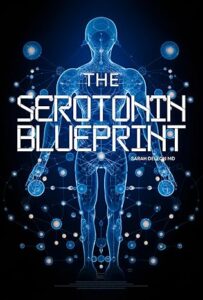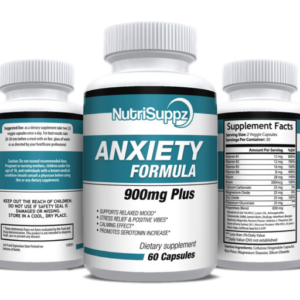29 Aug How Serotonin Regulates Anxiety
How Serotonin Regulates Anxiety
Anxiety is a complex mental health condition that affects millions of people worldwide. One key player in regulating mood and anxiety is serotonin, often referred to as the “feel-good” neurotransmitter. This article explores how serotonin influences anxiety, its mechanisms, and its role in emotional well-being.
What is Serotonin?
Serotonin is a neurotransmitter, a chemical messenger in the brain, that plays a crucial role in regulating mood, anxiety, and overall emotional balance. It is produced from the amino acid tryptophan and is found throughout the central nervous system as well as in the gastrointestinal tract. Serotonin’s primary functions include mood regulation, sleep, appetite control, and pain perception.

The Link Between Serotonin and Anxiety
Serotonin’s role in anxiety regulation is significant but complex. It helps modulate mood by influencing the levels of other neurotransmitters and hormones that affect emotional states. Adequate serotonin levels are associated with feelings of well-being and calmness, while imbalances can contribute to anxiety disorders.
Low serotonin levels are often linked to increased anxiety. When serotonin is insufficient, the brain’s ability to regulate mood and stress responses is compromised, leading to heightened anxiety and feelings of unease. This imbalance can manifest in various anxiety disorders, including generalized anxiety disorder (GAD), panic disorder, and social anxiety disorder.
How Serotonin Affects Anxiety Regulation
Serotonin affects anxiety through several mechanisms. One of the primary ways it influences anxiety is by modulating the activity of brain regions involved in emotional regulation, such as the amygdala and the prefrontal cortex. By enhancing the inhibitory signals in these areas, serotonin helps to counteract excessive fear and anxiety responses.
Additionally, serotonin impacts the brain’s stress response system. It can help regulate the release of stress hormones like cortisol, thereby reducing the physiological effects of stress and anxiety. Serotonin’s effect on the body’s stress response helps maintain emotional balance and resilience.
Moreover, serotonin influences sleep patterns and appetite, both of which are closely linked to anxiety levels. Disruptions in sleep and appetite can exacerbate anxiety symptoms, so serotonin’s role in promoting healthy sleep and appetite regulation is vital for overall anxiety management.
Enhancing Serotonin Levels for Better Anxiety Management
Increasing serotonin levels can be an effective strategy for managing anxiety. Several approaches can help boost serotonin, including dietary changes, lifestyle adjustments, and supplements.
Diet plays a significant role in serotonin production. Consuming foods rich in tryptophan, such as turkey, eggs, nuts, and seeds, can support serotonin synthesis. Additionally, regular physical exercise has been shown to increase serotonin levels and improve mood.
Certain supplements, such as 5-HTP (5-Hydroxytryptophan) and serotonin precursors, may also aid in boosting serotonin levels. However, it’s important to consult with a healthcare provider before starting any new supplement regimen, especially if you are taking other medications or have underlying health conditions.
Research and Evidence
Numerous studies have explored the relationship between serotonin and anxiety. Research has consistently shown that low serotonin levels are associated with increased anxiety and mood disorders. For example, studies on selective serotonin reuptake inhibitors (SSRIs), which are medications designed to increase serotonin levels in the brain, have demonstrated their effectiveness in reducing anxiety symptoms.
While these findings support the role of serotonin in anxiety regulation, it is important to recognize that serotonin is only one piece of the puzzle. Anxiety is influenced by a range of factors, including genetics, environment, and other neurotransmitters. Comprehensive treatment plans often address multiple aspects of mental health to achieve the best outcomes.
Conclusion
Serotonin plays a critical role in regulating anxiety by influencing mood, emotional balance, and the brain’s stress response. Adequate serotonin levels contribute to feelings of well-being and help manage anxiety, while imbalances can lead to heightened anxiety and related disorders. Enhancing serotonin through diet, lifestyle changes, and supplements can support anxiety management, though it is essential to approach these strategies with professional guidance.
At NutriSuppz, we are dedicated to exploring how natural approaches can support mental well-being.




No Comments